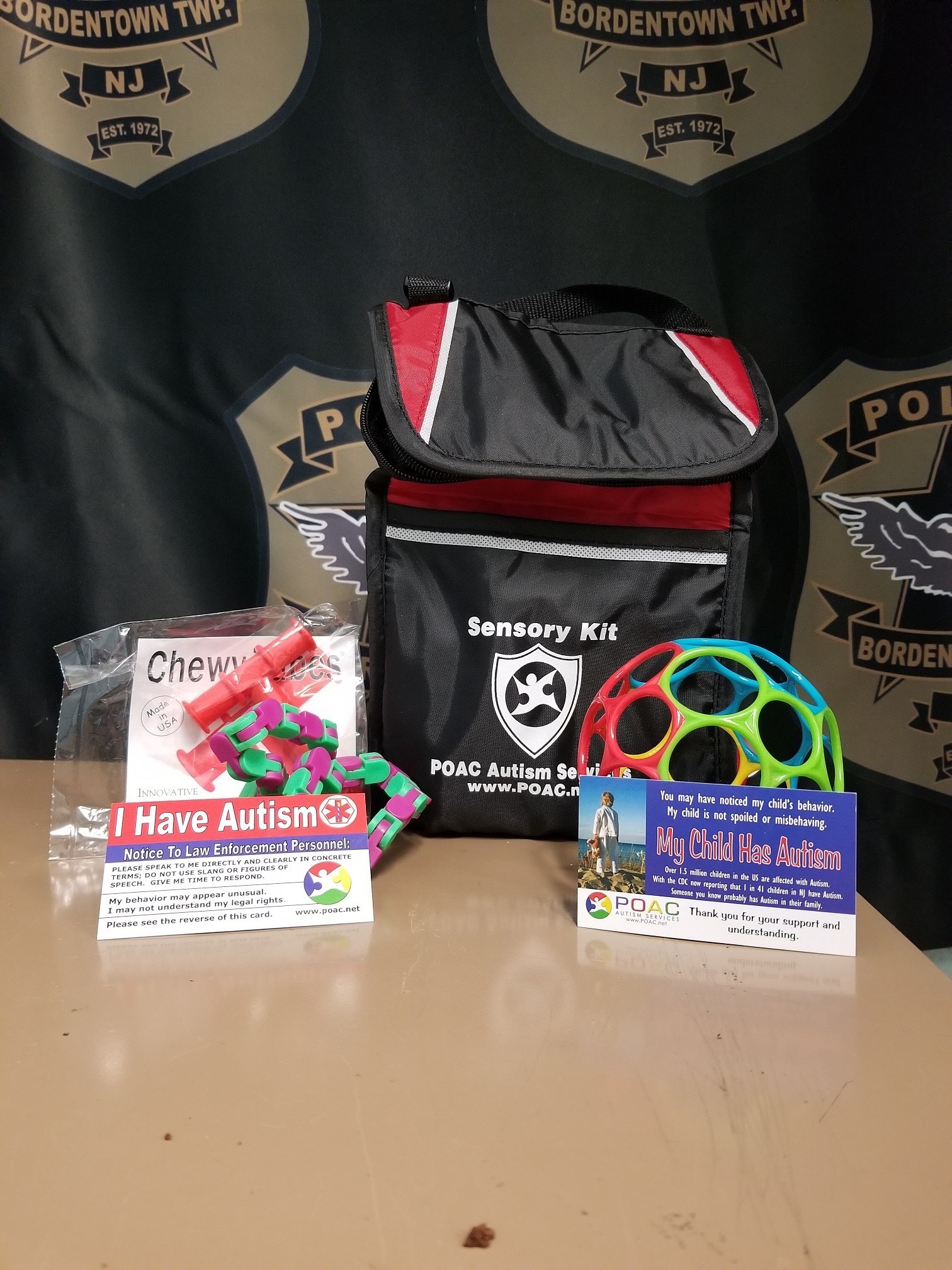The Bordentown Township Police Department will launch new steps aimed to enhance its interactions with the autism community.
The department announced on Sept. 12 that it purchased sensory kit bags to be stored in patrol vehicles, which are planned to be used to improve response and interactions with people diagnosed with autism in the event of a police encounter.
Department officials reported that the intent of these purchased kits is to meet the needs of a growing autism population in New Jersey. The state has the highest rate of autism in the country with one out of every 34 children born being diagnosed with it, according to department officials.
The kit contains the following items: An “Oball” toy ball for children with autism who often have difficulties with visual-motor integration; a “Toysmith Wacky Tracks,” which is a finger fidget stress reliever; “Chewy Tubes,” which are safe and durable chewy toys for special needs children and adults; 25 “I Have Autism” cards for first responders; and 25 “My Child Has Autism” cards for parents.
Bordentown Township Chief of Police Brian Pesce explained that the initiative for purchasing these kits came after he sent multiple officers to training for autism awareness. Pesce said that the officers were met with the discussion of sensory kits at the class, which they then pitched to the department for potential use.
Pesce explained that because statistics show a person with autism or other developmental disabilities is approximately seven times more likely to come in contact with law enforcement than the general population, the kits were to be seriously considered.
“[The officers] thought it was a good idea to purchase them and implement them in our day-to-day policing,” Pesce said. “What we also know is that, unfortunately, [people with autism] are seven times more likely to come into contact with the police than the general population, which is why training is important. Sometimes their actions or behavior can be misinterpreted by officers whether they have emotional outbursts or be confused. For untrained officers, they might mistake that as conflict or aggressive behavior when it’s not at all.”
For more than five years, Pesce said that his officers at the department have gone to autism awareness and recognition training, which is currently provided by the New Jersey Office of Emergency Management.
Pesce said it’s the department’s belief that increased training and awareness alongside the purchase of these kits can enhance officer and citizen safety to avoid possible “tragic consequences” of these encounters.
“We thought it was important to train our officers in awareness and recognition, but to also give them a tool to help deescalate these encounters and to calm them down,” he said. “That’s where we went with this sensory kit. These are proven resources in the kit that this population would enjoy and also calm a situation.
“It helps [officers] resolve these situations as peacefully as possible, so that the officers and individuals we are dealing are safe. We are excited to roll it out. We think it’s important and relevant to what’s going on in our state,” he added.
Although Pesce reported that a recent turnover of officials in the department still requires more officers to be trained for autism and awareness recognition, he said he is assured of the abilities in his employees already trained to handle these types of situations out in the field.
“Our goal is to get everyone in the department trained, but I’m confident because I know we have at least one officer in each squad already trained to recognize the signs and symptoms [of autism] and how to deescalate these types of situations,” Pesce said.
Moving forward, the police chief said that he is encouraging more officers to step forward with ideas aimed to progress the department’s daily duties to enhance their relations with the public and community.
“We are constantly trying to be progressive and think outside the box to resolve certain situations,” Pesce said. “We have an open door at the department where we want officers to feel comfortable presenting ideas and that those ideas are valued. Our administration will research them and maybe say, ‘That’s a great idea.’ I credit the officers that they are trying to be cutting-edge and understand the philosophy of our department. ”

